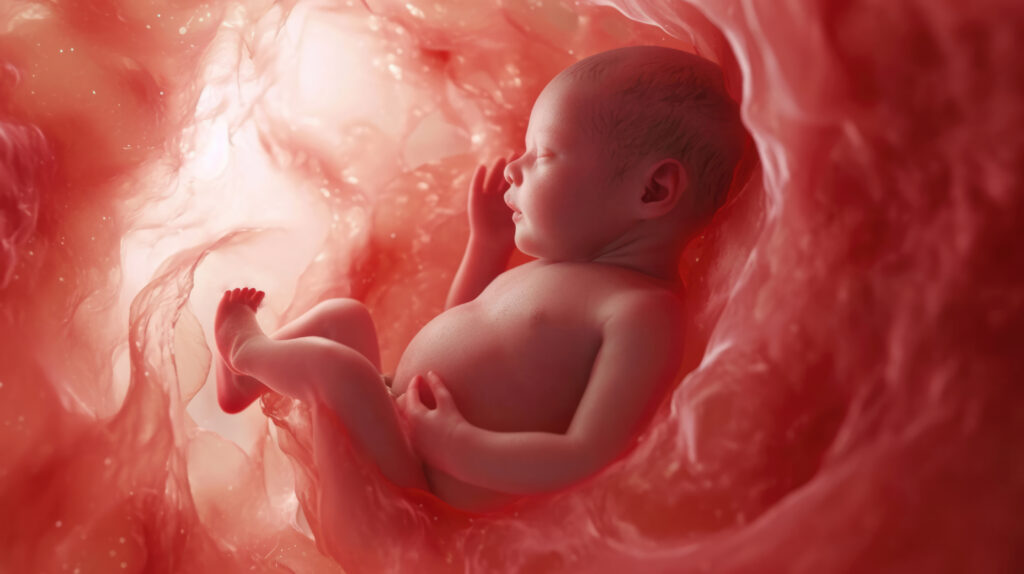VIRGINIA FACT CHECK: Science Demonstrates Unborn Babies Feel Pain by 15 Weeks

Following the Science on Virginia’s Pain-Capable Unborn Child Protection Act
Washington, D.C. – Virginia’s Pain-Capable Unborn Child Protection Act, introduced today by Delegate Kathy Byron and Senator Stephen Newman, would limit elective abortion at 15 weeks, when both pro-choice and pro-life scientists acknowledge that babies are capable of feeling pain.
Dr. Robin Pierucci, M.D., a board-certified neonatologist, medical director of a 50-bed neonatal intensive care unit, and associate scholar at Charlotte Lozier Institute, explained:
“The idea that unborn babies don’t feel pain is rooted in a bygone era when newborns were actually operated on without anesthesia or pain relief. While abortion advocates and their political allies continue to cling to that outdated belief, I am thankful to report as a neonatologist that neither science nor humanity have stood still.
“Incredibly, the pro-abortion American College of Obstetricians and Gynecologists continues to claim that babies don’t feel pain prior to 24 weeks, but an objective visit to a NICU easily proves otherwise. I routinely care for infants as young as 22 weeks. Their pain is obvious to anyone who cares.
“The current standard of medical care calls for unborn babies to receive pain medication during fetal surgery starting at 15 weeks. In fact, modern 3D and 4D ultrasound enables us to see an unborn baby cry and grimace when receiving that injection of pain medicine in utero. Their behavior is just like other kids when they get a shot at the pediatrician’s office.”

Source: Lisandra S. Bernardes et al., Sorting Pain Out of Salience: Assessment of Pain Facial Expressions in the Human Fetus, 6 Pain Rep. (2021). Watch the 4D ultrasound of a baby (third trimester) reacting to an injection of anesthetic prior to surgery in utero.
Writing in BMJ’s Journal of Medical Ethics in January 2020, Dr. Stuart Derbyshire, a leading pro-choice neuroscientist, concluded that the cortex is not necessary for pain perception, and that “the evidence, and a balanced reading of that evidence, points toward an immediate and unreflective pain experience mediated by the developing function of the nervous system from as early as 12 weeks.”
Dr. Katrina Furth, Ph.D., a Lozier Institute associate scholar who earned her doctorate in neuroscience at Boston University, is a developmental biologist who studies scientific advancements in our understanding of human prenatal development, including:
- By 15 weeks of pregnancy, every major organ has grown and most are functional.
- The heart pumps 26 quarts of blood per day.
- The intestines have started the lifelong contractions that propel food through the digestive system.
- The kidneys already filter toxins.
- By 15 weeks of pregnancy, the baby’s heart has already beat approximately 15,800,000 times.
- A baby’s heart starts beating at approximately 6 weeks.
- In total, a baby’s heart beats about 54 million times between fertilization and birth.
- By 15 weeks of pregnancy, the baby’s body responds to both touch and pain.
- The baby responds to light touches over most of the body.
- If something touches the palm of the baby’s hand, the baby will bend his or her fingers as if to grasp the object.
- Neurotransmitters specific to pain processing appear between 10- and 14-weeks’s gestation. The spinal nerves needed to transmit pain to the thalamus have formed by 15 weeks’ gestation.
Dr. Furth is lead researcher for VoyageOfLife.com, a Lozier Institute resource which makes the science of human prenatal development accessible and understandable for both professional-level and personal research.
According to a Charlotte Lozier Institute analysis of data from the Centers for Disease Control and the pro-abortion Guttmacher Institute, approximately 400 to 500 abortions occur in Virginia at 15 weeks gestation or later on an annual basis.
Charlotte Lozier Institute was launched in 2011 as the education and research arm of Susan B. Anthony Pro-Life America. CLI is a hub for research and public policy analysis on some of the most pressing issues facing the United States and nations around the world. The Institute is named for a feminist physician known for her commitment to the sanctity of human life and equal career and educational opportunities for women.
###


























